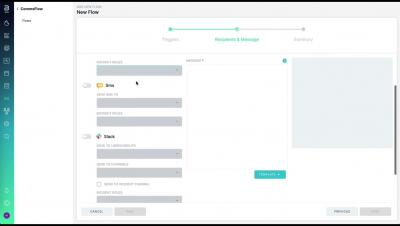Operations | Monitoring | ITSM | DevOps | Cloud
SRE
The latest News and Information on Service Reliability Engineering and related technologies.
Empower the SREs - Conclusions from The SRE Report 2023
Let's be honest, nobody loves surveys. Ok, well I sure don't. But surveys satisfy a huge need in our demand for insights into complex human-computer, sociotechnical systems. It turns out that we've been measuring the computer part pretty well, but the humans – not as easy to keep track of. When Google SRE first defined toil as a metric we wanted to reduce, we spent far too long trying to quantify it numerically based on tooling and insights from computer systems.
Ask a Site Reliability Engineer (SRE)
Guide to Service Level Indicators and Setting Service Level Objectives
A guide to set practical Service Level Objectives (SLOs) & Service Level Indicators (SLIs) for your Site Reliability Engineering practices.
Introducing a more complete logs forwarding experience
One of the key attributes of DevOps and SRE engineers is their ability to meticulously observe and monitor all of their applications. A task which can be achieved more efficiently by centralizing all generated logs to a central endpoint. By centralizing logging, engineers can, at any time, have an accurate overview of all events which take place across their applications, from just one place. Storing logs in an external system also allows companies to ensure compliance with many certifications.
For incident management, should you build or buy?
Service Level Management Process Explained (with Examples)
Welcome to the Blameless Slack Bot
To learn more and to start your FREE TRIAL of Blameless visit www.blameless.com
Incident Communications Using CommsFlow in Blameless
To learn more and to start your FREE TRIAL of Blameless visit www.blameless.com
Manage Incidents in Slack with Blameless
To learn more and to start your FREE TRIAL of Blameless visit www.blameless.com











